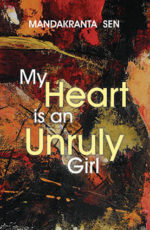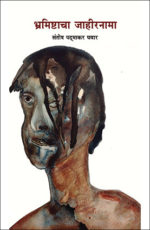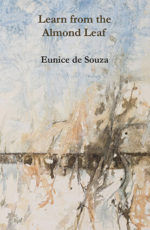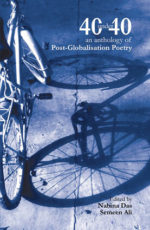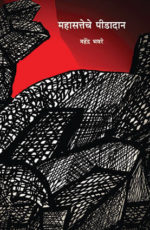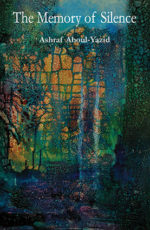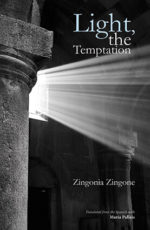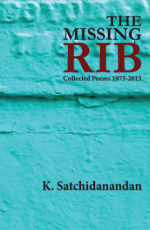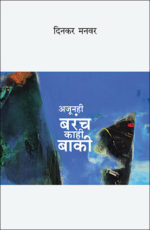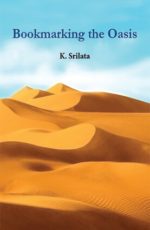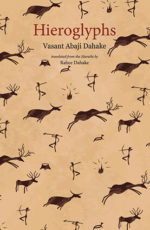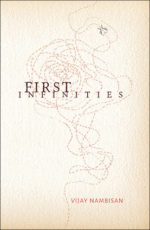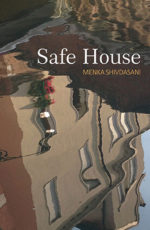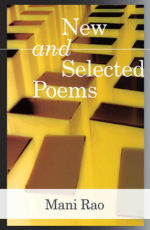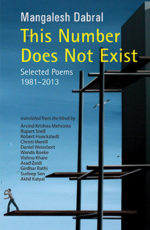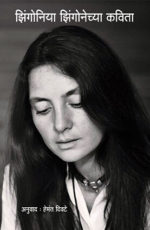-
Collected Poems
$20About the Book
Adman, householder, mystic, public intellectual and ashram devotee, Kersy Katrak (1936-2007) has never quite received his due as a poet. Katrak’s ‘lush, provocative, and very readable’verse has, with its rare but persistent appearance in anthologies of Indian poetry in English, remained in a curious way at once unforgotten and unrecognized. This book aims, at long last,to remedy this state of affairs. It is the very first comprehensive collection of Katrak’s poetic work, most of it long out of print,some of it previously published only in hard-to-find periodicals. Katrak’s poetry resonates powerfully with Wallace Steven’s observation that ‘It is equal to living in a tragic land, To live in a tragic time’. His concerns remain,palpably,our concerns: a search for the everyday alchemy that might translate the visceral potentials of collective life into generative forms of belonging. This problem of the relation between inner energies and outer forms is at the core of Katrak’s work as a poet and a mystic. And it is what binds his esoteric commitments to his career in advertising. The anthropologist William Mazzarella’s critical introduction to the present volume is the first substantive exploration of these connections in Katrak’s life and work.
-
My Heart is an Unruly Girl
$2About the Book
Bold and sensuous, Mandakranta Sen’s poems document the truths of body and desire. Holding nothing back, they spill over the pages and force us to take notice. My heart is an Unruly girl is a worthy addition to feminist poems of love and desire. The rawness of the original Bengali translates beautifully and seamlessly into English. “She who writes poetry in the middle of the night/ With her hair undone – is a witch”, Mandakranta writes. One tends to agree. There is, certainly, an element of witchcraft in these poems, which cast a spell on the readers.
-
Learn from the Almond Leaf
$10About the Book
In these her late poems, the volcano that is Eunice de Souza is still erupting. As in her early work too, what she here ‘upchucks’ is lava, molten lines that burn and glow and leave a permanent mark. The tone, as before, is casual, bantering, close to the spoken idiom that is uniquely hers. When terrible things happen the tone changes, quickens, then relaxes again. Life is bemusing, ludicrous; death even more so. In the work of no other poet I can think of do you find such brevity and grandeur, swiftness of utterance and the unbearable weight of grief, unbearable because de Souza is so dry-eyed. ‘The crone’s still capable/of spite’ she writes in one poem, the old necklace-of-skulls self-irony intact, except that in her case ‘spite’ also means ‘wisdom’. It is easy to forget that the crone is deeply moral as well, and like any moral being she too feels that she’s lived ‘In the wrong season.’ There is plenty in these spare but unsparing poems to remind us of the classical virtues we associate with Bhartrhari, for instance, or a Latin epigrammatist like Martial. These are poems to live by. In time, they will come to be seen as classics of our literature, as many of her earlier poems already are. Arvind Krishna Mehrotra
-
40 under 40
$5About the Book
“The Indian poetry scene has always been considered to be lively, but no better evidence of this fact exists than 40/40. Here we have forty contemporary Indian poets under forty years old, and what we encounter is extraordinarily timely and compelling, providing us the trace of a newly emergent lyric consciousness, simultaneously local and cosmopolitan. Here we have Akhil Katyal reminiscing about being ten years old and growing up in the shadow of the AIDS epidemic, “battling the stars of a virus”; we have Chandramohan S’ witty “Plus-Size Poem” that “does not opt for offshore liposuction”; and we have the speaker of Ishita Basu Mallik’s sonnenizio about going commando under her jeans and turning her beloved into ” an electric remnant bombarding” her “bones with wavelengths.” From Jennifer Robertson’s prose poem about Jesus and Jaipur, Rohan Chhetri’s universe in braille, or Shelly Bhoil’s typographical experimentation, this anthology shows us the pulse of a generation coming of age in an era of mass media and Hindu mythology. I have no doubt that this will be one of those books that when looked back on will have been proven to be seminal and indispensable, introducing us to both the present and the future of Indian poetry.” -Ravi Shankar, Pushcart Prize winning poet and Founding Editor of Drunken Boat * THIS ANTHOLOGY HAS BEEN EDITED BY NABINA DAS & SEMEEN ALI
-
The Memory of Silence
$16About the Book
Ashraf Aboul-Yazid breaks his silence, but in soft whispers. Like the soft susurration of the title of his first book of poems Washwashat Al Bahr (the Whisper of the Sea), his voice speaks to our soul directly, needing no aural recourse. His memories are a map rolled open, containing multitudes- cites and rivers, balconies and butterflies, evenings and sadness. We enter this atlas that is Aboul-Yazid’s selection of poems from his larger oeuvre and are introduced to one of Egypt’s most prolific poets, novelists, translators and literary critics. His poems evoke wehmut, a melancholy located in the acceptance of our transitory-ness in this world, which we inhabit but for two days- ‘A day to open his arms for friends/ And a day for hugging their mirage.’ In the Middle East of the present, beset with strife and displacement, his words are the many cuts on our complacency, rousing us from the safe acts of reading poetry in a book, bringing us face to face with protagonists of a history not of their own making. Those who are cursed to ‘know a homeland’ that is like a visa’. Those, beset with the weight of the past, stand exposed. ‘In the heavy rain; No one feels’ A lonely drop. Aboul-Yazid’s soft voice recounts memories from decades of remembering, mingling beauty and sadness, rising out from the depths of the Nile, into the balconies and mashrabiyas of Benha his hometown, and beyond into a poet?s state of permanent exile. – Mustansir Dalvi poet, translator and cultural theorist
-
Light, the Temptation
$10About the Book
In Zingonia’s new poems it is a similar exercise that is happening. Instead of justifying the ways of God to men, these poems seem to me to be the ways of men and women to God. This daring act of a moment of surrender to the pristine unity of every thing cements the diverse poems here into one epic of mutations and metamorphoses. In this world the persona an Algerian beggar can merge into one of Jesus. Atoms and stars partake of the same reality as a flower. The fractured fates of Shen Fu, Maurice Utrillo and Max Jacob, which are acts of recurrent human tragedy become settings of Divine Comedy. Though the thrust of Zingonia’s poems is indubitably mystical, their mysticism goes beyond orthodoxies and heterodoxies of what is generally considered mystical. Their laconic beauty has the palpability of something militantly this- worldly as if Eternity is indissolubly in love with creations of time. At this point my words want to go back to the eloquent silence of these poems. I am sure other readers of this remarkable work will find these poems as enchanting and enlightening as I did. ‘Light, the Temptation’ is not a work to be read and abandoned. It invites us to contemplate on the rich resonances of its deceptively simple expressions in order to return the world to the world, ourselves to ourselves, meanings to our world where faceless robots are marching blindly towards irredeemable emptiness. – H S Shivaprakash (an excerpt from his introductory note)
-
The Missing Rib (HB)
$11About the Book
This is a dark, powerful, pulsating collection of poems, the effect of which continues to reverberate, disturb and shock one out of one?s complacency long after one has finished reading them.. The Hindu (reviewing So Many Births) Satchidanandan’s poetry is an irresistible mix of the real, surreal, intellectual, sensual, and spiritual. Satchidanandan does not shy away from asking deeper existential questions -of being, freedom, love, compassion, nature, language, death Shanta Acharya (reviewing While I Write in Modern Poetry in Translation) Satchidanandan’s ‘I’ tells stories about itself, and like all good story-tellers, by telling its own story, his ‘I’ ends up telling stories about others as well. There is an ethical bent in this aesthetic enterprise, where fondness and empathy towards others enter your lines and transform your poetry the way they once transformed your life. Manash Bhattacharya (reviewing While I Write in Biblio) K. Satchidanandan is definitely not a poet who keeps aloof from the world. He is a poet on a journey.. Poetry for him is a cry against all walls? It is his cosmopolitanism that makes Satchidanandan interesting beyond India. Dr. Wolfgang Kubin (Reviewing the German collection, Ich Globe Nicht an Grenzen in Orientierungen: Zeitschrift zur Kultur)
-
The Missing Rib (PB)
$11About the Book
This is a dark, powerful, pulsating collection of poems, the effect of which continues to reverberate, disturb and shock one out of one?s complacency long after one has finished reading them.. The Hindu (reviewing So Many Births) Satchidanandan’s poetry is an irresistible mix of the real, surreal, intellectual, sensual, and spiritual. Satchidanandan does not shy away from asking deeper existential questions -of being, freedom, love, compassion, nature, language, death Shanta Acharya (reviewing While I Write in Modern Poetry in Translation) Satchidanandan’s ‘I’ tells stories about itself, and like all good story-tellers, by telling its own story, his ‘I’ ends up telling stories about others as well. There is an ethical bent in this aesthetic enterprise, where fondness and empathy towards others enter your lines and transform your poetry the way they once transformed your life. Manash Bhattacharya (reviewing While I Write in Biblio) K. Satchidanandan is definitely not a poet who keeps aloof from the world. He is a poet on a journey.. Poetry for him is a cry against all walls? It is his cosmopolitanism that makes Satchidanandan interesting beyond India. Dr. Wolfgang Kubin (Reviewing the German collection, Ich Globe Nicht an Grenzen in Orientierungen: Zeitschrift zur Kultur)
-
The Owl and the Laughing Buddha
$12About the Book
The poems in The Owl and the Laughing Buddha bring a ‘lighthouse sweep of attentiveness’ to their subjects. This is a book about noting, from the title poem’s companionable but contrasting figures on a writing desk to the devastating aftermath of a cloudburst in the mountains, and from a flier’s eye-view to a walker’s – and a mole’s. Here are poems interested in gods and figures of myth, and in observing houses, trees, birds and other creatures in a changing neighbourhood; poems that talk shop with fellow poets and respond to works of art and culture; and poems that watch our responses to the daily catastrophes that sometimes constitute ‘news’ – whose interest is no less a matter of whimsy, perhaps, than some of the tales narrated in the final section of the book. Yet the poems rest on an implicit conviction that everything must be given its due and treated seriously – though not solemnly, for it is mirth, after all, that is the laughing Buddha’s centre of gravity. Treading margins between the real and the imagined, the concerned and the tongue-in-cheek, this is Menon’s third collection of poems.
-
Ajunahi Barach Kahi Baaki
$16About the Book
This is Dinkar Manvar’s second collection of poetry. A very powerful voice in Marathi; the poems in this collection are hard-hitting and honest showcasing life at its honest best.
-
Bookmarking the Oasis
$15About the Book
The poems in Bookmarking the Oasis slide between water and land as they reflect on boundaries, partings, and the identities thrust on us. Luminous, quiet, courageous, Srilata’s poems plunge into the poetics of the everyday, recording fugitive moments with humour, irony and compassion. Nothing escapes the poet?s eye, whether the classroom’s tyranny for both teacher and taught, the blindness of experts, the vulnerabilities of childhood, or the volatile interiors of the human mind. Some poems draw on other poets’ voices, beginning conversations and uncovering strange resonances. Connecting it all is the image of the oasis, unexpected, delicious; a serene, fluid clearing in the mind, bookmarked for later, that allows poetry – and everything else – to happen
-
Hieroglyphs
$29About the Book
Hieroglyphs is a translation of Sahitya Akademi Award winning collection in Marathi- Chitralipi by Vasant Abaji Dahake. It has been translated into the English by Rahee Dahake.
-
First Infinities
$12About the Book
Hell, or a state very much like it, does feature in Nambisan’s poetic underworld, which is deep, intricate and enticing. …… – From the Preface by Adil Jussawala Nambisan’s view of humankind is bleak, his view of the possibilities of poetry even bleak
-
-
New and Selected Poems
$12About the Book
For several years,Mani Rao has been cutting her own fiercely singular path through the thickets of our language; with each new book her compositional values become both lighter and more precise, and her gestures-for this is a poetry of intens
-
Zingonia Zingonechya Kavita
$10About the Book
b.1967 is an internationally well-known Marathi poet, editor, publisher and translator. His published works include Chautishiparyantchya Kavita Poems Till Thirty-Four, Thambtach Yet Nahi Just Cant Stop and Ya Roommadhye Aale Ki Life Suru Hote The Moment You Enter This Room, Life Begins. His poems have been translated into English, French, Spanish, German, Urdu, Arabic, Gujarati, Bengali, Hindi, Oriya, Tamil, Telugu, Kannada and Malayalam. The celebrated poet and translator Dilip Chitre translated Chautishiparyantchya Kavita into English and titled the book Virus Alert which then has been translated into Spanish-Alarma De Virus by Zingonia Zingone and in Irish as Folireamh Vris by Gabriel Rosenstock.
-
Mutatis Mutandis
$10About the Book
Through sex-dolls and addictions, for whom poetry can be just another narcotic throbbing in your vein. Khandekar’s man has stretched himself to the limits of the Machiavellian primate, modifying his behaviour and absurdum to fit in with the changing patterns of a world spinning out of control on the wheel of progress. Meet the ghost in the machine Sanjeev Khandekar’s poetry grins impishly, then socks you in the eye. It makes you feel horns on your head and inspect your skin for green stripes. Khandekar breaks conventions of belief, language and genre to offer a world with no certainties, where you are just a gob of self-awareness floating in a matrix of virtual reality, mutating every moment to balance your inner needs with social expectations. You are the Mutatis Mutandis Man the human ‘with necessary changes’ carried out the modified man tossed between inscrutable science and enigmatic religious faith, the creature who gropes for love and creativity that may lure you towards self-destruction. Meet Khandekar’s Monster and see if he seems familiar.
Khandekar’s poetry, like his art, is disturbingly unconventional; and Abhay Sardesai and Nandita Wagle’s excellent translation from Marathi now brings it to the English reader.
-Antara Dev Sen


